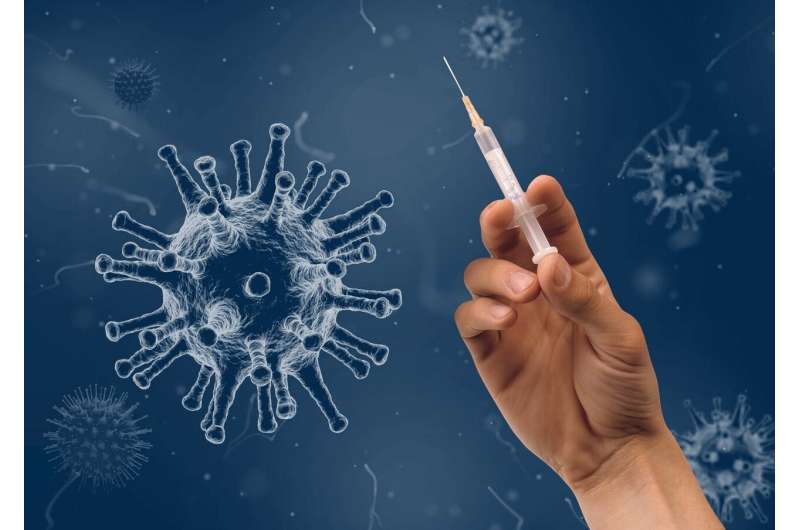Transparency urged to raise COVID-19 vaccine uptake


Issues around vaccine acceptance must be addressed alongside equity of access and logistics if the goal of vaccinating 70% of the world’s population against COVID-19 is to be met, says a report by global health policy experts.
Emerging causes of so-called “vaccine hesitancy,” described by the World Health Organization (WHO) as “the reluctance or refusal to vaccinate despite the availability of vaccines,” should be monitored continually in order to better understand the problem, according to the InterAcademy Partnership (IAP).
The 26 April Countering COVID-19 Vaccine Hesitancy Report spotlights the socio-political and psychological issues around vaccine hesitancy and sets out recommendations for overcoming them.
It says surveillance systems are needed to track any adverse effects of vaccines, while non-politicized debate and transparency around data are essential to improving COVID-19 immunization rates worldwide.
IAP co-chair Margaret Hamburg said: “Vaccine hesitancy is one of the most pressing issues of our response to COVID and more broadly our opportunity to prevent disease and improve health.”
She said it was “critically important” to engage with people who would benefit from vaccines.
The WHO has said that at least 70% of the population of every country must be fully vaccinated by mid-2022 in order to bring the pandemic under control. But so far only 15.2% of people in low-income countries have received at least one dose, according to Our World in Data.
Vaccine hesitancy is one of a number of factors contributing to this gap, according to the IAP report.
It recommends that science communicators engage with communities in open debates—with roll-out plans adjusted to take account of feedback—as a way of allaying fears. But it warns that such debates should not be politicized.
“Really listening to people’s concerns and responding to them is important as we attempt to help people feel more comfortable with accepting vaccines and the fact they will protect their health and prevent disease,” said Hamburg.
The IAP has more than 140 national, regional and global member academies that work to support the role of science in finding evidence-based solutions to public health and other development challenges. Its two secretariats are based in Italy and the U.S.
The report, produced to help governments and science communicators improve vaccine acceptance, recommends integrating more visual imagery, such as internet memes, into vaccine communications. But caution is advised on repeating false claims, even when rebutting them, to avoid putting unnecessary attention on misinformation.
It also advocates for greater transparency in sharing vaccine data. “There should be clear communication protocols for communicating with the public about adverse events,” it says.
But Fatima Hassan, founder of the Health Justice Initiative, based in South Africa, says that while this might be valuable advice for global health leaders and science communicators, such sharing has proven problematic in the past.
Referring to the impact of data on blood clots and delays in vaccine delivery in some countries, she told SciDev.Net: “Pharmaceutical companies that did data sharing may require some introspection because there was a lot of confusion caused.”
A rare but serious blood-clotting problem, known as vaccine-induced thrombotic thrombocytopenia, has been linked with the COVID-19 vaccines developed by AstraZeneca and Johnson & Johnson.
Hassan also suggests that vaccine hesitancy may be a less pressing problem in the global South than in the North.
Research published in Nature shows considerably higher willingness to take a COVID-19 vaccine in low- and middle-income countries compared with the U.S. and Russia.
Considering just 15% of Africans are fully vaccinated, according to Africa Centres for Disease Control and Prevention statistics, compared to 66% of the U.S. population, Hassan sees access to vaccines as a more pressing problem.
“The majority of vaccine supplies have been prioritized for richer countries, and there isn’t meaningful technology transfer,” she said. “These issues point more to the fact that the real problem is inequality, and that vaccine hesitancy is one part of a much bigger, very complex picture.”
However, even before COVID-19, scientists highlighted the need for more data on vaccine hesitancy worldwide.
A study of 149 countries published in The Lancet in 2020 estimated that confidence in the importance, safety, and effectiveness of vaccines fell in Afghanistan, Indonesia, Pakistan, the Philippines, and South Korea between 2015 and 2019, before the pandemic.
“Our findings highlight the importance of regular monitoring to detect emerging trends to prompt interventions to build and sustain vaccine confidence,” the researchers wrote.
Source: Read Full Article